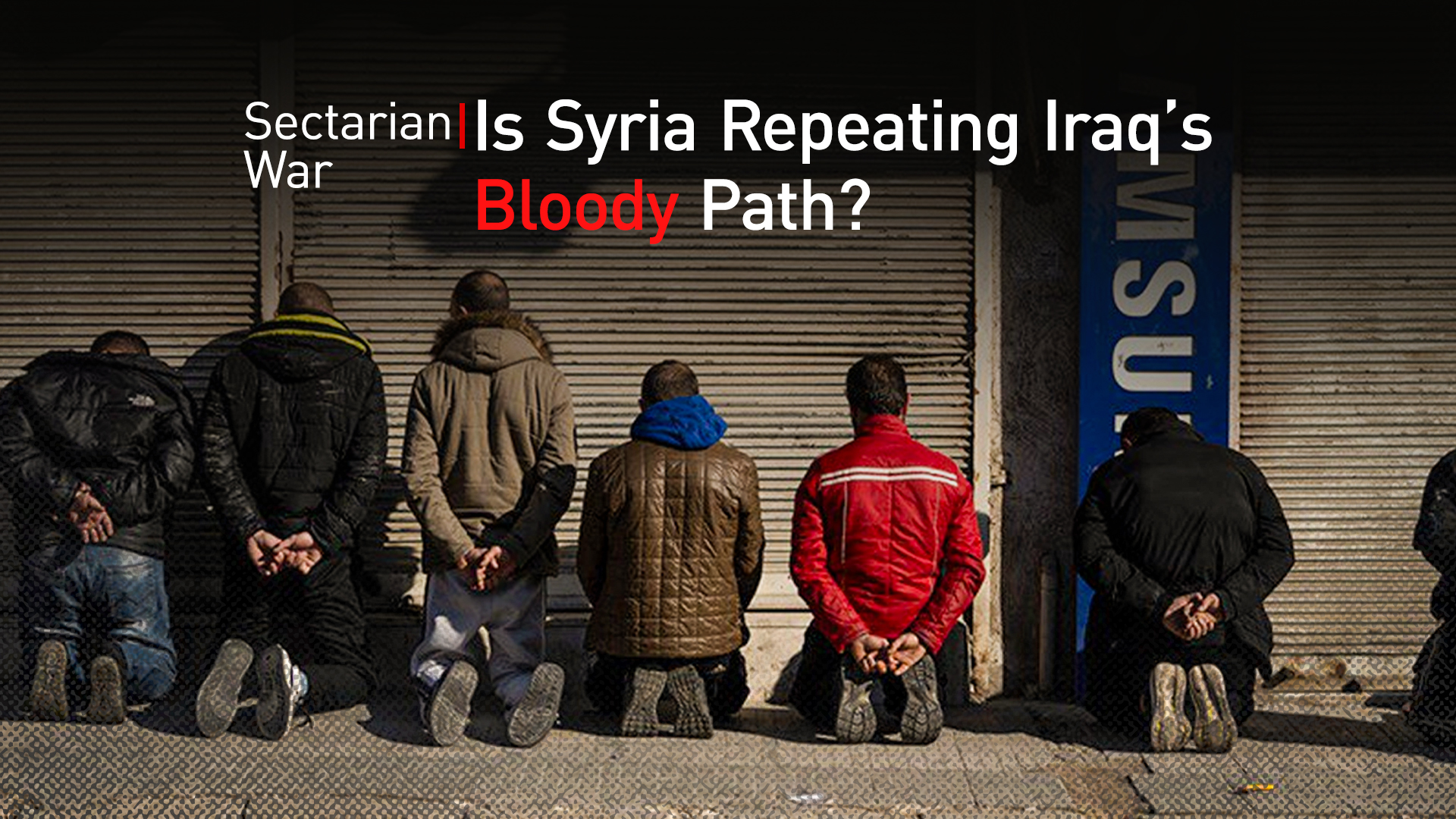Sectarian War: Is Syria Repeating Iraq’s Bloody Path?
While ostensibly aimed at restoring order, these operations have fueled further sectarian tensions, with reports of extrajudicial killings and sweeping crackdowns against local populations.

Jan. 29, 2025
ERBIL (Kurdistan24) –As Syria struggles to navigate its post-war transition, a relentless surge of sectarian violence is engulfing the country, mirroring the bloody descent into chaos that plagued Iraq after Saddam Hussein’s fall.
Since the beginning of January 2025, at least 204 people, including five women and a child have been killed in revenge attacks, field executions, and sectarian-driven violence across multiple provinces, according to the Syrian Observatory for Human Rights (SOHR).
The surge in sectarian killings raises alarm bells about the country’s fragile transition and the risk of prolonged instability, mirroring the deep divisions that plagued Iraq after 2003.
Homs: The Epicenter of Sectarian Killings
Homs has witnessed the highest number of killings, with 95 victims—60 of whom were targeted solely due to their sectarian affiliation. Others were executed for their political loyalties, particularly for their past support of the Assad’s regime.
Hama follows closely with 53 deaths, including 33 due to sectarian identity. Meanwhile, Latakia recorded 15 killings, with 13 victims executed for sectarian reasons. Other provinces such as Damascus, Aleppo, and Tartous have also seen a surge in retaliatory violence against former regime loyalists and religious minorities.
Most of the targeted individuals belonged to Syria’s Alawite, Shia, and Murshidi communities, who had long been associated with the Assad regime. Armed groups, including those aligned with the transitional government, have carried out widespread summary executions, mass arrests, and desecration of religious symbols in a clear violation of humanitarian principles.
In response of this acts, the transitional government, launched a series of security campaigns in Homs, Damascus countryside, Latakia, and Tartous. While ostensibly aimed at restoring order, these operations have fueled further sectarian tensions, with reports of extrajudicial killings and sweeping crackdowns against local populations.
Rights Groups Warn of Rising Sectarian Violence Threatening Syria’s Stability
Human rights organizations are calling for an immediate halt to sectarian-driven violence in Homs and other affected areas. The SOHR has warned that continued revenge killings and extrajudicial executions will only deepen societal fractures, jeopardizing Syria’s long-term stability.
The observatory also urged military authorities to respect international humanitarian law and ensure the protection of civilians, emphasizing that unchecked sectarian violence will only entrench hostility and fuel further cycles of bloodshed.
Syria at a Crossroads: Will It Follow Iraq’s Path of Sectarian Bloodshed?
The current trajectory in Syria bears striking similarities to Iraq’s descent into sectarian bloodshed following Saddam Hussein’s fall and Iraq’s failure to establish an inclusive government led to prolonged cycles of Sunni-Shia violence, empowering extremist groups and destabilizing the country’s fragile democracy.
Despite over two decades since the fall of Saddam Hussein, Iraq continues to struggle with sectarian divisions that threaten its stability. Syria now faces a similar crossroad—whether to embrace a national reconciliation process or spiral into Iraq-style factionalism and insurgency.
The unfolding crisis in Syria poses a critical question: Will the country learn from Iraq’s mistakes, or will it repeat the same cycle of sectarian fragmentation and insurgency?
With retaliatory killings on the rise, the path Syria chooses in the coming months could determine whether it builds a unified future or plunges deeper into a new era of sectarian warfare.